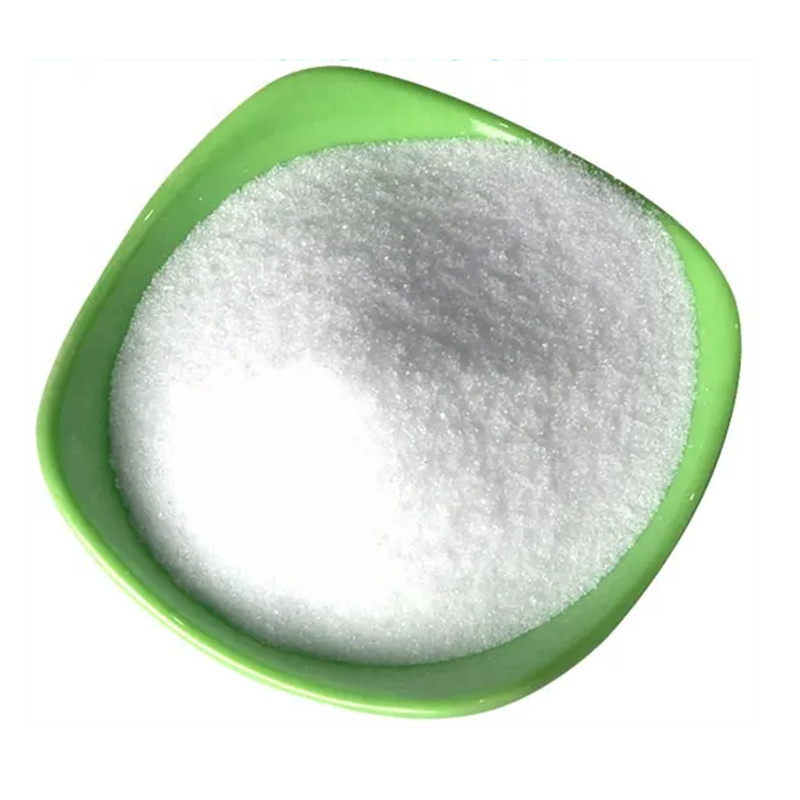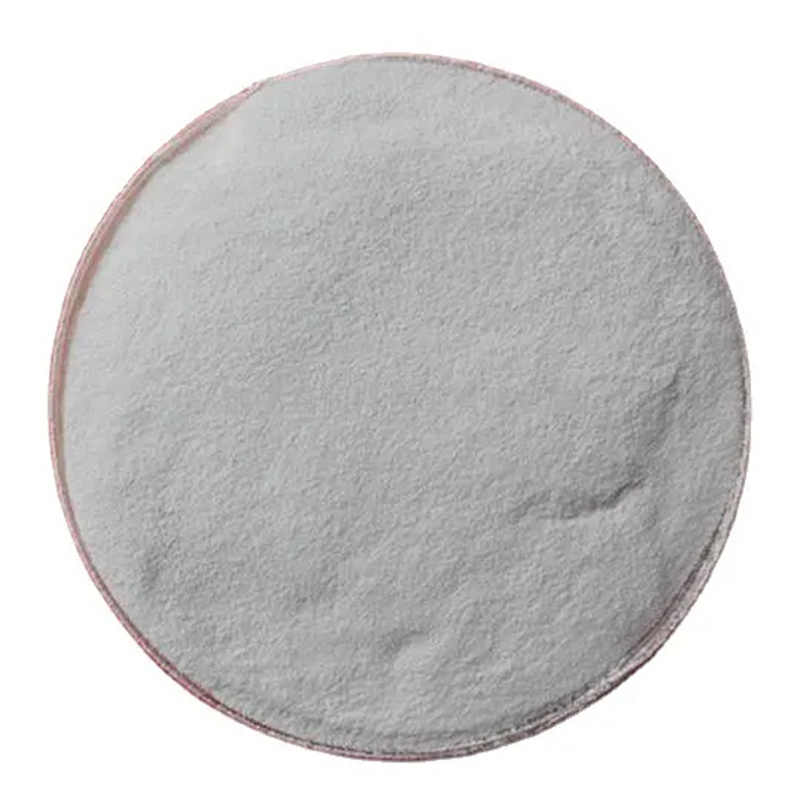Niacinamide (nicotinamide ) is a form of vitamin B3. "Vitamin B3" can mean niacinamide (nicotinamide) or nicotinic acid (niacin). Some companies may label niacinamide and nicotinic acid as "niacin." However, niacin and niacinamide are different forms of vitamin B3. They have different chemical structures that work differently in your body. For example, niacinamide doesn't reduce cholesterol levels like niacin.
Niacinamide is a water-soluble vitamin, meaning it's not stored in the body. You need to consume it through food or supplements. Your body needs niacinamide to create energy. Your cells need it to function correctly. Vitamin B9

This article discusses potential niacinamide uses, safety, dosage, and more.
Dietary supplements are not regulated in the United States, meaning the Food and Drug Administration (FDA) does not approve them for safety and effectiveness before products are marketed. When possible, choose a supplement tested by a trusted third party, such as the United States Pharmacopeia (USP), ConsumerLab, or NSF.org. However, even if supplements are third-party tested, that doesn’t mean they are necessarily safe for all or effective. It is important to talk to your healthcare provider about any supplements you plan to take and check in about potential interactions with other supplements or medications.
Supplement use should be individualized and vetted by a healthcare professional, such as a registered dietitian, pharmacist, or healthcare provider. No supplement is intended to treat, cure, or prevent disease.
Niacinamide has been studied for several different skin issues. Read on for more information about its possible benefits.
Always consult a healthcare provider specializing in skin health, such as a dermatologist, if you have developed a skin issue. Self-treating with supplements or delaying diagnosis and treatment can make conditions worse.
Niacin deficiency can result from the following:
Symptoms of niacin deficiency include the following:
Niacinamide supplementation can reverse these issues. It's generally recommended over nicotinic acid (niacin) to treat niacin deficiency due to fewer side effects.
Talk with your healthcare provider or registered dietitian nutritionist if you believe you may have a niacin deficiency. They will help diagnose and treat this condition.
Researchers have also studied niacinamide for its use in the following:
Further high-quality studies are needed before recommendations can be made for these conditions.
As with most supplements and medications, side effects are possible when taking niacinamide.
Your healthcare provider may recommend taking a niacinamide supplement for any of the reasons discussed in the previous section.
No matter the reason for taking niacinamide, it's essential to know and understand any common or severe side effects you may or may not experience.
Niacinamide is considered generally safe for oral (by mouth) and topical (skin) use. Unlike niacin (nicotinic acid), niacinamide does not cause skin flushing.
In general, niacinamide has fewer potential side effects than other forms of niacin. However, taking higher doses than normal of niacinamide can make side effects more likely.
Possible side effects from taking oral (by mouth) niacinamide supplements include:
Side effects of topical (skin) niacinamide creams include:
When niacinamide supplements are taken at a dose that's too high, severe side effects may occur.
Severe side effects of niacinamide include the following:
Be sure to talk to your healthcare provider if you experience side effects from taking niacinamide supplements. It may be necessary to stop taking niacinamide in some instances.
Specific populations of people should take precautions when starting niacinamide supplements.
Always speak with a healthcare provider before taking a supplement to ensure that the supplement and dosage are appropriate for your needs.
Niacinamide is generally considered safe in foods and supplements in doses of less than 35 milligrams (mg) daily.
Research has found it is safe when taken in doses up to 950-1500 mg daily. Though niacinamide may be safe in these higher amounts, side effects may arise (such as increased bleeding and an upset stomach).
Talk with your healthcare provider when deciding how much niacinamide to take daily.
Depending on your unique needs, health conditions, or other medications or products you use, you may need more or less niacinamide.
Generally, never use more niacinamide than the supplement's label suggests unless directed by a healthcare professional.
Of all the forms of niacin available in supplement form, niacinamide is generally the safest. However, it's still possible to take too much niacinamide.
The following issues have been reported with too much niacinamide:
In people undergoing dialysis through the vein, niacinamide's most common side effects (500–1,500 mg daily for several months) included:
Again, it's essential to stay within the recommended dose of niacinamide. Follow your healthcare provider's suggestions or what's listed on the supplement label.
The following moderate interactions are possible between niacinamide and other medications:
There are no known interactions between niacinamide and foods.
Niacinamide supplements can slow blood clotting and increase your risk of bleeding. For these reasons, it may be best to avoid taking niacinamide with supplements that may also increase bleeding, such as the following:
You must carefully read the ingredient list on the nutrition label of any supplement you take to know which and how much of each ingredient is in the supplement. Please review all supplement labels with your healthcare provider to discuss potential interactions with foods, other supplements, and medications.
You should store niacinamide supplements in a cool, dry place.
You should avoid storing your supplements in places that could become too hot or cold. It's also best to keep supplements away from direct sunlight.
Some niacinamide creams or serums may require refrigeration.
Consult the label of your products for the best storage techniques.
Discard niacinamide supplements as indicated by the use-by date listed on the label.
Some supplements work similarly to niacinamide:
Niacinamide has several potential uses. Similar supplements may replicate the effects of niacinamide.
Please consult your healthcare provider or registered dietitian nutritionist for the safest supplement regimen.
Niacinamide (nicotinamide) is a form of vitamin B3. The umbrella term vitamin B3 includes nicotinic acid and nicotinamide.
Niacinamide and nicotinic acid (aka niacin) are common forms of vitamin B3 in supplements. Your body can convert tryptophan from food into niacinamide as needed, and it may make niacinamide from niacin to an extent when there's enough of it.
Niacinamide is a form of vitamin B3, a water-soluble vitamin. This means that vitamin B3 and other water-soluble vitamins can dissolve in water.
In contrast, fat-soluble vitamins dissolve in fat like vitamins A, D, E, and K.
Know what else is in your supplements before taking them. Niacinamide supplements, including oral (by mouth) capsules and topical (skin) serums, often contain other ingredients.
Common ingredients added to niacinamide supplements include cellulose, gelatin, and stearic acid. Serums may contain vitamin B5, vitamin C, licorice extract, and glucosamine. Multivitamins may also contain niacinamide, so you'll want to take care when taking supplements together so you don't get too much.
Typically, you may be getting enough niacinamide through your diet.
If possible, take a "food first" approach to getting enough niacinamide.
Eating a variety of whole foods can help you get most of the necessary vitamins and minerals.
Niacinamide supplements may be necessary to treat certain skin conditions.
Deficiencies can happen if your body cannot absorb enough niacinamide or if you have any other conditions.
Speak with your healthcare provider to see if they think niacinamide can help.
Tryptophan in foods may eventually convert to niacinamide in the body through different biochemical pathways.
Food sources of tryptophan include the following:
Niacinamide supplements can be applied in topical (skin) form as creams or serums and taken orally (by mouth) as capsules or powder. The supplement form you choose will depend on your health needs.
When purchasing a new supplement, look for "niacinamide" on the label. Other products may claim the benefits of niacinamide but contain different ingredients or forms of vitamin B3, like niacin (nicotinic acid). These do not work the same way niacinamide does.
Niacinamide supplements are generally safe and may help with various medical conditions. Before taking any supplements, talk to your healthcare provider. This will ensure you know the correct dosage for your health needs and goals.
Niacinamide is a form of vitamin B3 that your body needs to create energy and your cells need to function correctly. It's often consumed through food or supplements. Niacinamide supplements can apply topically (on the skin) in cream or serum formulas or orally (by mouth) through capsules or powder.
Niacinamide has been studied for several health conditions, such as pellagra, acne, and skin cancer. Niacinamide supplements may help treat certain skin conditions or be used if your body cannot absorb enough niacinamide.
Although niacinamide supplements are generally safe, consult a healthcare provider before taking any supplements.
Ratnarajah K, Zargham H, Jafarian F. Confusion among different forms of vitamin B3. J Cutan Med Surg. 2020;24(6):642-643. doi:10.1177/1203475420936649
D'Andrea E, Hey SP, Ramirez CL, Kesselheim AS. Assessment of the role of niacin in managing cardiovascular disease outcomes: a systematic review and meta-analysis. JAMA Netw Open. 2019;2(4):e192224. doi:10.1001/jamanetworkopen.2019.2224
Hrubša M, Siatka T, Nejmanová I, et al. Biological properties of vitamins of the B-complex, part 1: vitamins B1, B2, B3, and B5. Nutrients. 2022;14(3):484. doi:10.3390/nu14030484
National Library of Medicine, National Institutes of Health. Niacinamide.
Walocko FM, Eber AE, Keri JE, et al. The role of nicotinamide in acne treatment. Dermatol Ther. 2017;30(5). doi:10.1111/dth.12481
Boo YC. Mechanistic basis and clinical evidence for the applications of nicotinamide (Niacinamide) to control skin aging and pigmentation. Antioxidants. 2021;10(8):1315. doi:10.3390/antiox10081315
Navarrete-Solís J, Castanedo-Cázares JP, Torres-Álvarez B, et al.A double-blind, randomized clinical trial of niacinamide 4% versus hydroquinone 4% in the treatment of melasma.Dermatol Res Pract.2011;2011:379173.
Chen AC, Martin AJ, Choy B, et al. A phase 3 randomized trial of nicotinamide for skin-cancer chemoprevention. N Engl J Med. 2015;373(17):1618-1626. doi:10.1056/NEJMoa1506197
Maiese K. Nicotinamide as a foundation for treating neurodegenerative disease and metabolic disorders. Curr Neurovasc Res. 2021;18(1):134-149. doi:10.2174/1567202617999210104220334
National Library of Medicine, National Institutes of Health. Nicotinic Acid Deficiency.
Office of Dietary Supplements, National Institutes of Health. Niacin.
Zhang Y, Ma T, Zhang P. Efficacy and safety of nicotinamide on phosphorus metabolism in hemodialysis patients: A systematic review and meta-analysis. Medicine (Baltimore). 2018;97(41):e12731. doi:10.1097/MD.0000000000012731
Murray, Michael T. Diabetes mellitus types i and ii. Textbook of Natural Medicine. 2020:1262-1286.e5. doi:10.1016/B978-0-323-43044-9.00165-5
Office of Dietary Supplements, National Institutes of Health. Niacin.
El‐Khalawany M, Nouh AH, Kadah AS, Elsheikh M, Said M. Evaluation of safety and efficacy of topical 4% nicotinamide in treatment of psoriasis; among a representative sample of Egyptians (An analytical observational study). Dermatologic Therapy. 2022;35(9). doi:10.1111/dth.15734
Huber R, Wong A. Nicotinamide: an update and review of safety & differences from niacin. Skin Therapy Lett. 2020;25(5):7-11.
Khtab TA, Kamil YM, Jalil AQ. The effect of zinc and niacin powder addition on some physiological and production performance of turkey. IOP Conf Ser: Earth Environ Sci. 2023;1158(5):052022. doi:10.1088/1755-1315/1158/5/052022
Savinova OV, Fillaus K, Harris WS, Shearer GC. Effects of niacin and omega-3 fatty acids on the apolipoproteins in overweight patients with elevated triglycerides and reduced HDL cholesterol. Atherosclerosis. 2015;240(2):520-525. doi:10.1016/j.atherosclerosis.2015.04.793
Borrego-Sánchez A, Sainz-Díaz CI, Perioli L, Viseras C. Theoretical Study of Retinol, Niacinamide and Glycolic Acid with Halloysite Clay Mineral as Active Ingredients for Topical Skin Care Formulations. Molecules. 2021;26(15):4392. doi:10.3390/molecules26154392
Prousky JE. The use of niacinamide and solanaceae (nightshade) elimination in the treatment of osteoarthritis. J Orthomol Med. 2015;30(1).
By Regina C. Windsor, MPH, RDN Regina Windsor, MPH, RDN, is an editor for Verywell Health. Her expertise includes population health, data analysis and synthesis, nutrition and dietetics, publishing, and education. She is a systems-oriented thinker with a passion for exploration and authentic connection.
Thank you, {{form.email}}, for signing up.
There was an error. Please try again.

Vitamin E By clicking “Accept All Cookies”, you agree to the storing of cookies on your device to enhance site navigation, analyze site usage, and assist in our marketing efforts.